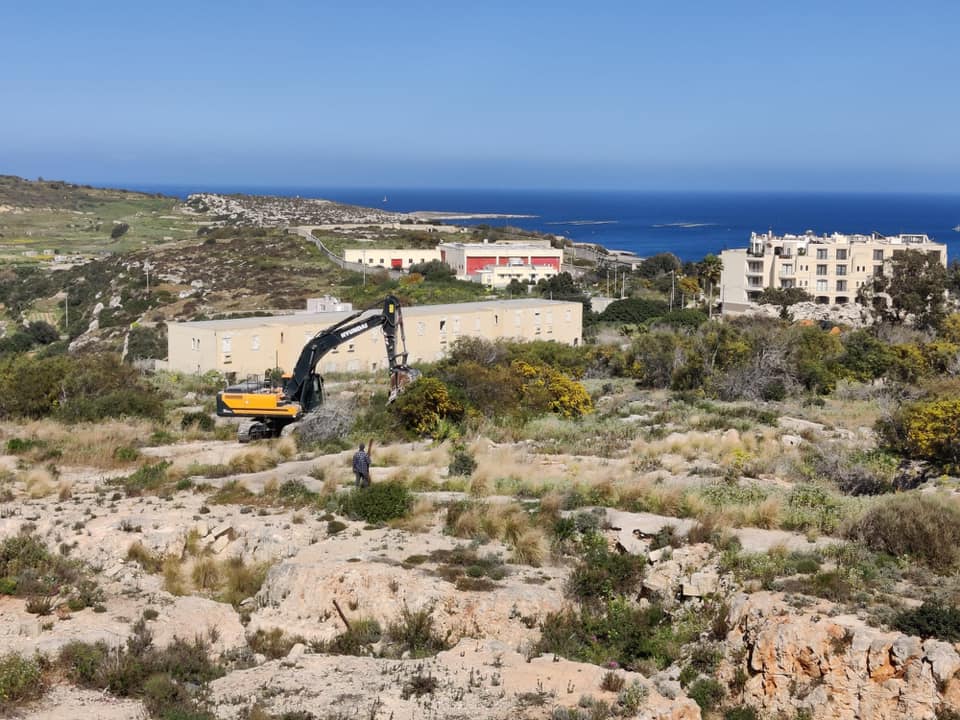Malta’s planning tribunal has decided to uphold a permit to build a high-rise development on the site of the former Mistra Village in Xemxija.
The decision – which is certain to add to the controversy – is the latest development in a long-running saga that is starting to approach the two-decade mark, having first erupted in 2007.
The project changed hands amidst delays and bankruptcies, and is now owned by Charles Camilleri, known as Tal-Franċiż.
The site is set to become a 12-storey, 744-unit complex on the Xemxija ridge.
One of the main legal arguments hinged on the question of what constitutes “commitment”.
Permits in Malta typically have a validity of five years. Upon the renewal of the initial permit, the Planning Authority, opponents say, simply rubber-stamped the decision without re-assessing the project in light of new legislation.
The PA argued that the project was committed, so no such revaluation was necessary – an argument endorsed by the Environment and Planning Review Tribunal.
Objectors then turned to the Court of Appeal, which rejected the PA’s argument and made it clear that a site can only be considered committed after it is assessed whether the development works have reached a point which prohibit the consideration of laws, plans and policies introduced after the permit was issued, since such consideration would “seriously prejudice” the work already done.
However, there was practically no work conducted on the site of the former Mistra Village until late March 2023, despite the permit being issued back in 2013 (and published in 2014).
In May 2023, the Court of Appeal found that the Tribunal did not consider this issue with a “factual lens”, and therefore “wrongly applied” the law in question.
It therefore ordered the Tribunal to re-assess whether the permit in question has been “committed”, and if not, whether or not it is “compatible” with the laws, plans and policies in place today.
Now, over one year later, the Tribunal has once again decided in favour of the development.
Speaking to BusinessNow.mt about the decision, Perit Tara Cassar says that the tribunal considered the site “committed” to the mega-development since the site has been excavated.
She adds that the Tribunal “failed to consider that the site was only excavated after a previous Tribunal composed of different members had refused (28/03/2019) a request for the suspension of the works whilst the appeal proceedings were still underway.”
In other words, the Planning Tribunal first argued that the works can go ahead despite the ongoing appeal, and then rejected the appeal based on the ongoing works – seemingly confirming a worst-case scenario envisioned by environmental NGOs which last week called on the Prime Minister to reform the “rotten” appeals system.
Perit Cassar continues: “The tribunal also considered the development in line with the Local Plans since the policy pertaining to the site makes reference to the Floor Area Ratio policy (FAR), the planning mechanism concerning high-rise developments. The Local Plan policy simply refers to the FAR mechanism which at the time of the writing of the local plans (2006) was not limited to specific locations in Malta.
“In 2014 the FAR policy was revised with Xemxija specifically being listed as unsuitable for such developments. The tribunal should have considered the new policy that was issued after the original permit was given.
“Through the revised 2014 policy the high-rise development would be deemed a non-starter.”
Two years since its birth, Moneybase features on Microsoft’s Customer Stories
Moneybase has now just been featured on Microsoft’s latest Customer Stories
Finance Minister confirms continuity of food and energy subsidies
Spending on food and energy subsidies as a percentage of the GDP will be at 0.7% in 2025
MHRA congratulates Glenn Micallef on EU role, highlights positive impact on Malta’s tourism and cultural sectors
The lobby group emphasised that Malta’s cultural assets and sports scene are key factors in attracting visitors and fostering economic ...






